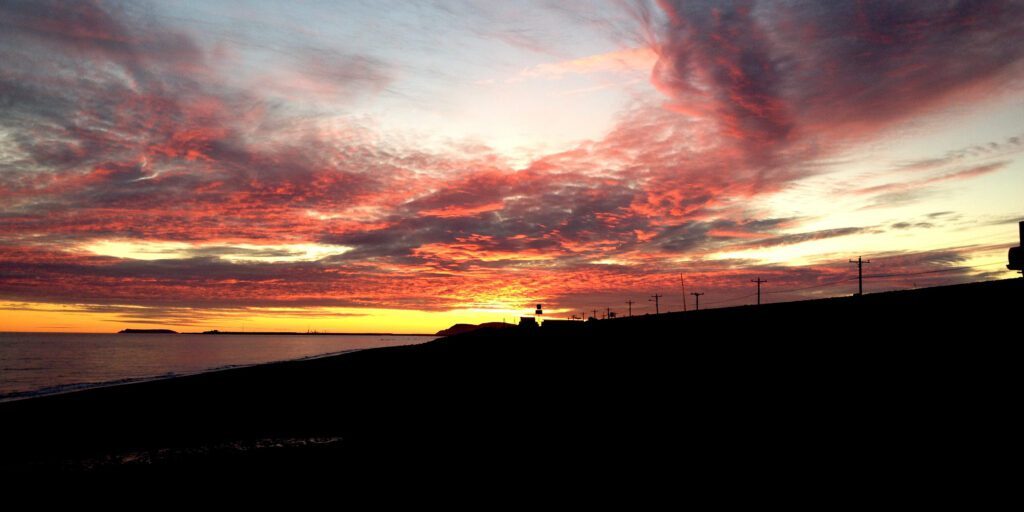“Nice day, isn’t it?” A man asked me as I waved to him walking down Front Street.
At first, I thought he was kidding. Fifty degrees in August, overcast skies, a slight wind and a few sporadic raindrops, it wasn’t exactly your typical “nice” summer day. But there was no evidence of sarcasm in his tone. This man was grinning ear to ear, cheerfully strolling down Nome’s dirt roads, genuinely content with the weather.
And when I really tried to see things through the eyes of someone who has lived in Western Alaska for a while, this was a nice day. We were able to walk outside with nothing but a light jacket, weren’t we? The sun was still out, albeit behind some clouds. We didn’t have to worry about slipping on icy roads.
“Very nice day,” I replied.
In moments like these, I can feel my brain shed its old way of thinking and begin to adjust and adapt to the Nome mentality. It is amazing how quickly and naturally this mechanism has kicked in. In some ways, I feel like a child again. Everything is new and exciting, and I have an endless list of questions. I look to the people around me for answers on how to function in a somewhat unfamiliar world.

Luckily, I’m surrounded by patient, supportive and intelligent individuals who are eager to answer any questions I may have. As my boss Kelly has said repeatedly, there is a huge learning curve, both at work and in life here.
Every day is a reminder of how much I still have to learn: board operation, audio editing, and accurate pronunciation of Western Alaskan village names. And that’s the easy stuff. I still want to learn the proper etiquette when interviewing Native elders, the history and significance of the Iditarod, the process and impact of gold dredging and the legalities surrounding fishing and hunting. The list is infinite; my time here is not.
What I have begun to understand is the importance of radio in this region, how in the Lower 48 people may spend 30 minutes per day listening to one station, while here it’s an average of 4 to 5 hours.
“We provide companionship for a lot of people out there,” Kelly once told me. And I’ve already seen firsthand that that’s the truth. It’s humbling to be part of something that has played such a meaningful role in lives around the region.
I have loved every minute of learning and learning what I have yet to learn. In just two weeks, I’ve gone berry picking, adopted the necessary art of being bear aware, hiked Anvil Mountain, attended the berry festival, signed up for guitar lessons and a ceramics class and jumped on a school bus for a community garden tour.

“Smell everything,” one woman advised during the garden tour. “I’m telling you, you will miss smelling flowers.”
It is that type of beautiful urgency that is also new to me. With summer coming to a close and winter approaching rapidly, people are smelling all the flowers, taking long walks and drives, picking and freezing blueberries, dipping their toes in the Bering Sea. It’s survival, it seems. Inhaling life so deeply now so we still have some warmth and magic to last us through the winter months.








